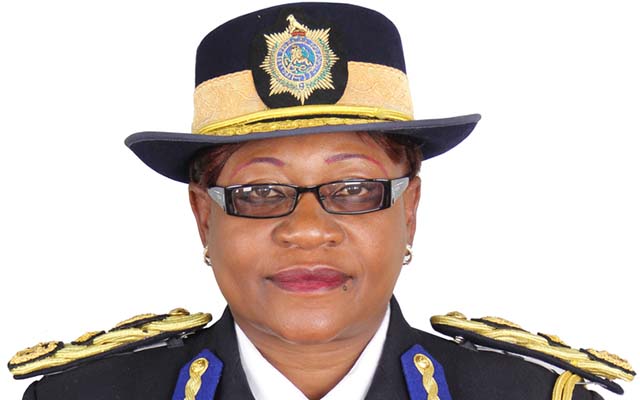Information literacy for every blind child

Stanely Mushava Features Correspondent —
Dendera proponent Sulumani Chimbetu is once again playing to the gallery – this time in a more literal sense. Sulumani was last week appointed goodwill ambassador of the Braille Association of Zimbabwe. In the same breath, highly regarded artist and Bulawayo-based gospel musician Clarence Garura also officially accepted the same role.
Their immediate assignment is staging shows to raise money for the refurbishment of the Bulawayo City Library’s braille section. They will be joined on their countrywide circuit by Somandla Ndebele, Jays Marabhini and others.
Bulawayo City Library recently initiated a campaign to make public libraries more disability-inclusive and is living its gospel by upgrading its 21-year old braille section with new content and technology.
The showbiz duo took up the mantle during an in event which brought together the Bulawayo City Library, the Visually-impaired People of Zimbabwe and the Disability Desk of the President’s Office in Harare on Thursday last week.
Enhancing access to information for the visually impaired broadens their economic opportunities in the knowledge-driven global era. Garura said facilitating equal access to content is a human rights issue rather than a charity case.
“The visually impaired people need our love and support. It is not the time to stand up for them but let us stand up with them so that we speak the gospel of inclusion,” he said.
“Access to information is a basic right hence we need to do something with those that need our assistance, so that inclusion does not only start when they have to access information but they get included in all activities.”
Minister of State for Provincial Affairs for Harare Metropolitan Province Miriam Chikukwa lauded Bulawayo City Library’s concept of an accessible library for visually impaired citizens as a step towards economic empowerment.
“Poverty in many communities is due to, among other issues, a lack of information accessibility. Today, we are pleased that people with impaired vision will now have the same access to information as the rest of us,” Minister Chikukwa said.
“They will now be well placed to play a meaningful role in the economic and social improvement and also play a part in our political arena.
“Visually impaired people have to date been contributing immensely to various economic sectors, in spite of the challenges around information access.”
Minister Chikukwa, however, noted that apart from the traditional braille format, visually impaired people must be empowered through greater access to information and communication technologies.
Trust Mutekwa, known in literary circles as Ticha Muzavazi, is a blindness specialist and Giles Special School teacher.
He is a vocal proponent of a related campaign called “Computer Skills for Every Blind Student” which is now in its second year. Under the programme, teachers, mainly at special schools are embarked on equipping visually impaired students with computer literacy.
They are also working on acquiring computers with speech software to plug the inadequacy of up-to-date braille material which disempowers blind children. Mutekwa told the education segment of Herald Review that need has arisen in areas of up-to-date reading material as old braille books in many libraries need to be renovated or made accessible online.
“There is need for computers with speech software or screen readers for blind readers. Significantly, Bulawayo Public Library is selling this idea to all public libraries around the country.
“At the same time, we are saying every blind child must be equipped with computer skills so that they benefit from the technology,” Mutekwa said.
Mutekwa said bringing aboard goodwill ambassadors of note is a strategic catalyst in the mission to bring the idea of the inclusive library to every city and computer skills to every school.
“For instance, we work with artists like Hope Masike and Victor Kunonga in our Special Schools Arts Festival. We succeeded in sending mbiras to all specials schools around the country and, we have managed to establish vibrant arts clubs through their support in advocacy and fund raising,” Mutekwa said.
The disability-inclusive library and computer literacy campaigns are complementary initiatives in championing the imperative “Access to Information by All Blind People in Zimbabwe.”
“Without ICT-literate literate blind students, there would be no need for the libraries with computers or other facilities for the benefit of blind ‘readers’.”
The “Computer Skills for Every Blind Child” programme looks to improve participation of blind people in education and industry.
It also looks to correct a situation whereby there is no reliable production of braille in the institutions working with blind students by furnishing students with textbooks in soft copy. Mutekwa said that a teacher can save selected textbooks in children’s computers, thereby doing away with the disadvantage whereby some teachers and parents are not braille-literate.
“We are moving towards inclusive education – a child learning at a choice school without necessarily being restricted to particular special schools away from family. The computer takes us closer to our people,” Mutekwa said.
“Computers enable blind students to fit in any educational setting. That is why we do not have special universities or a place where only blind people will be employed special schools.”
Blind students can also access online sources for their studies and assignments like any other student using speech recognition software. Such software is buried in the prohibiting clutter of the web hence the need for teachers to help students with just what they need and teach them to be tech-smart for themselves.
The new primary and secondary curriculum framework includes ICT as a stand-alone learning area from Early Childhood Development to Advanced Level, a progressive development that will facilitate greater access to content for visually impaired students.
However, changes are being implemented progressively beginning from lower stages which means the majority of students now in school will not boast the benefits curriculum of the new curriculum on their exit profiles.
“If we remain quite on ‘Computer Skills for Every Blind Child’ when we are teachers for the blind, it is better to be doing other jobs.
“We cannot continue to send blind students without information literacy skills after spending 13 to 15 years with them in school,” Mutekwa said.
“We acknowledge from everyday evidence that blind children are fast learners. Any further delay in computer skills gives them unnecessary challenges at tertiary level. If we still have dire need for braille, the computer can produce braille through the use of an embosser. Computer keys SDF & JKL can also be turned into braille keys. No child shall miss braille experience while enjoy the enhanced benefits of the computer.
“It is possible to send computers to all the resource units and special schools for the blind. Decision makers and the Treasury may never be aware of our children’s potential if we continue to be quiet.”
There are also economic reasons for the emphasis on the computer. A braille machine is about twice the price of the laptop and takes about a year to learn whereas computers are ubiquitous.
Feedback: [email protected].










Comments